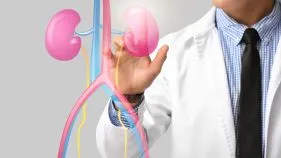
Best nephrologist in Mumbai
If you’re looking for the best nephrologist in Andheri, Dr. Sandip Bhurke is one of the leading specialists in kidney care. He has an extensive educational background, having completed his MBBS from GMC & JJ Group of Hospitals, Mumbai, MD (General Medicine) from TNMC & BYL Nair Charitable Hospital, Mumbai, and DNB Nephrology from Sir Ganga Ram Hospital, New Delhi.
Why Choose Dr. Sandip Bhurke?
Dr. Sandip Bhurke is an expert in diagnosing and treating kidney diseases, including common conditions like kidney failure, kidney stones, and chronic kidney disease. He focuses on individualized care for his patients, offering personalized treatment plans to address their specific kidney health needs.
Kidney Diseases Treated by Dr. Sandip Bhurke:
- Acute Kidney Failure: Sudden and life-threatening kidney failure caused by the buildup of waste and toxins in the blood.
- Chronic Kidney Disease (CKD): A long-term condition caused by factors like high blood pressure, diabetes, and smoking that gradually damage kidney function.
- Diabetic Nephropathy: Kidney damage caused by uncontrolled diabetes, one of the most common causes of kidney disease.
- Glomerulonephritis: Conditions affecting the glomeruli, tiny blood vessels that filter blood in the kidneys, causing conditions like hematuria (blood in the urine) and proteinuria (protein in the urine).
- Polycystic Kidney Disease (PKD): A genetic disorder that causes cysts to grow in the kidneys and can lead to kidney failure.
- Kidney Stones: Build-up of minerals in the urine, leading to painful stones that may require medical intervention.
- Kidney Transplant: Replacement of non-functioning kidneys with a donor kidney, a procedure that Dr. Bhandari excels in.
- Hypertension: High blood pressure, which can gradually damage kidneys over time.
- Nephrotic Syndrome: Symptoms like swelling, high cholesterol, and large amounts of protein in the urine, indicating kidney dysfunction.
- Kidney Cancer: Specialized treatment for cancers like renal cell carcinoma and Wilms’ tumor.
Additional Specializations:
Dr. Bhurke also specializes in treating kidney conditions in specific populations, including:
- Pediatric Nephrology: Kidney care for children and adolescents.
- Geriatric Nephrology: Kidney care for elderly patients, ensuring they receive appropriate treatment for age-related kidney conditions.
- Dialysis Management: For patients who require kidney dialysis due to kidney failure.
Kidney Health is Critical:
Regular visits to a nephrologist like Dr. Sandip Bhurke are crucial for maintaining kidney health, especially for those with risk factors like high blood pressure, diabetes, or a family history of kidney disease. Early detection and treatment can prevent the progression of kidney damage, making the condition easier to manage and improving quality of life.
Precautions and Early Diagnosis:
It’s always better to be cautious and seek medical attention early if you experience any symptoms of kidney issues. Common signs of kidney problems include:
- Swelling in the legs, feet, or face
- Fatigue or weakness
- Changes in urine output (frequency, color, or amount)
- Shortness of breath
- Itchy skin
- Pain in the lower back or abdomen
Consult Dr. Sandip Bhurke:
If you live in Andheri or nearby areas like Jawahar Nagar or Motilal Nagar, and are experiencing any of the symptoms mentioned, or if you need a consultation for a kidney-related issue, you can book an appointment with Dr. Sandip Bhurke
Early diagnosis and effective management of kidney conditions can significantly improve the quality of life and reduce the risk of kidney failure. Make sure to consult with a trusted nephrologist for kidney care, and take proactive steps to protect your kidney health.

